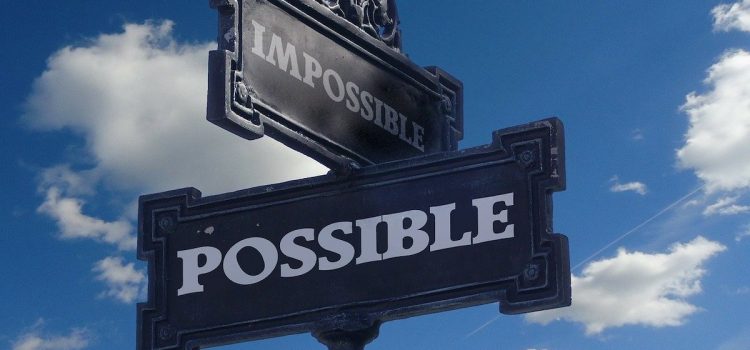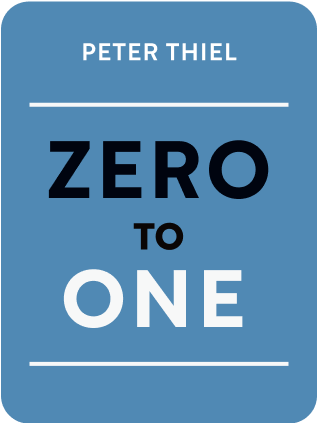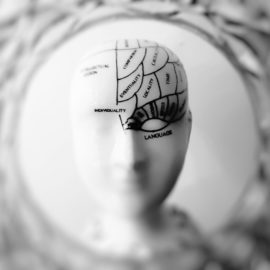

This article is an excerpt from the Shortform summary of "Zero To One" by Peter Thiel. Shortform has the world's best summaries of books you should be reading.
Like this article? Sign up for a free trial here .
What revolutionary truth do you know that no one else agrees with? What discovery could you make if you challenged assumptions?
Peter Thiel believes in secrets—truths that no one else has. He contends that there’s more knowledge to be discovered and new opportunities to be explored. But, to find them, we have to believe they exist and look for them. We have to challenge assumptions in order to discover something new. The place to start, he contends, is with the contrarian question.
Here’s how Peter Thiel’s contrarian question can help you uncover the secret to success.
Peter Thiel’s Contrarian Question
Zero to One deals with Peter Thiel’s contrarian question: “What revolutionary truth do you know that no one else agrees with?” If you know something, especially something important, that nobody else does, then by definition, you have a secret. You need a secret to answer Thiel’s question, so he spends a chapter in Zero to One discussing secrets and how to find them. Challenging assumptions is a key aspect of discovery.
How to Uncover Secrets
Thiel’s favorite tactic to discover secrets is to look where nobody else is looking. Whether in business, science, or some other field, what questions do people in the mainstream refuse to address or investigate? Or what have they simply overlooked? Thiel calls this the “human approach” to discovering secrets, as opposed to the “natural approach,” which involves making comprehensive observations and analyzing the data to find new trends or new phenomena. He points out that often, these two methods lead to the same discoveries, but the human approach is typically more efficient.
He offers the dot-com and housing bubbles as an example of this principle: These bubbles were created by inefficiencies in the market, but no one was willing to question the efficiency of the market at setting prices. During those bubbles, you could have taken the natural approach and determined through careful analysis that first internet companies and then real estate was over-valued. But simply challenging assumptions that no mainstream expert dared to challenge would have led you to the same conclusion with less analysis.
The Importance of Believing in Secrets
Of course, to discover secrets, you first have to believe that they exist. If you don’t believe there are revolutionary discoveries yet to be made and profitable new businesses to be built, then you won’t see these opportunities because you’re not looking for them. Thiel stresses the importance of this because in his view, most of society doesn’t believe in secrets anymore.
To explain his reasoning, Thiel contrasts secrets with conventions and mysteries:
- Secrets are knowable, but it takes effort and intelligence to discover them. Finding secrets is rewarding, both because it’s challenging and because secrets are valuable.
- Conventions are, by definition, widely known. Sometimes they’re useful, but they don’t give you an advantage.
- Mysteries, in the sense that Thiel uses the term, are unknowable. They’re not useful in practice because they’re impossible to figure out.
According to Thiel, today most people tend to assume that all the questions in the world are either insoluble or have already been solved: There are no secrets left. Everything is either a mystery or a convention. He attributes this societal belief to the cumulative effect of four trends:
- In the school system, we teach children to solve problems by following prescribed instructions, not by coming up with their own original solutions.
- We tend to seek the approval of our peers, and conventions provide intellectual safety in this regard. No one will write you off as a weirdo if you stick to believing only what everyone knows is true.
- The people with the most wealth want to preserve the status quo because they’re comfortable with their situation. As such, they have no motivation to search for new discoveries.
- It’s hard to believe that there are new discoveries left to be made, because, with the globalization of the economy, there are a staggering number of people working in almost every industry. With so many other people out there, it’s easy to think that someone has already discovered anything that’s worth discovering.
As an example of this mentality carried to the extreme, Thiel discusses the case of Ted Kaczynski, the infamous “unabomber.” According to the manifesto that Kaczynski published, modern life was meaningless because personal fulfillment comes from solving meaningful problems and every problem worth solving had already been solved. Kaczynski’s solution to this problem was to destroy civilization as we know it, plunging the survivors back to the Stone Age so that they could start over.
Thiel contends that Kaczynski—and most of modern society—is wrong. There are still secrets left to be discovered. We haven’t found cures yet for cancer, dementia, or old age. We don’t really even have a good scientific understanding of nutrition. We need new sources of sustainable energy and better means of transportation. There are plenty of problems that are worth solving, and are likely possible to solve, but haven’t been solved yet.

———End of Preview———
Like what you just read? Read the rest of the world's best summary of Peter Thiel's "Zero To One" at Shortform .
Here's what you'll find in our full Zero To One summary :
- Why some companies genuinely move the world forward when most don't
- How to build a company that becomes a monopoly (and why monopolies aren't bad)
- Silicon Valley secrets to selling products and building rockstar teams






